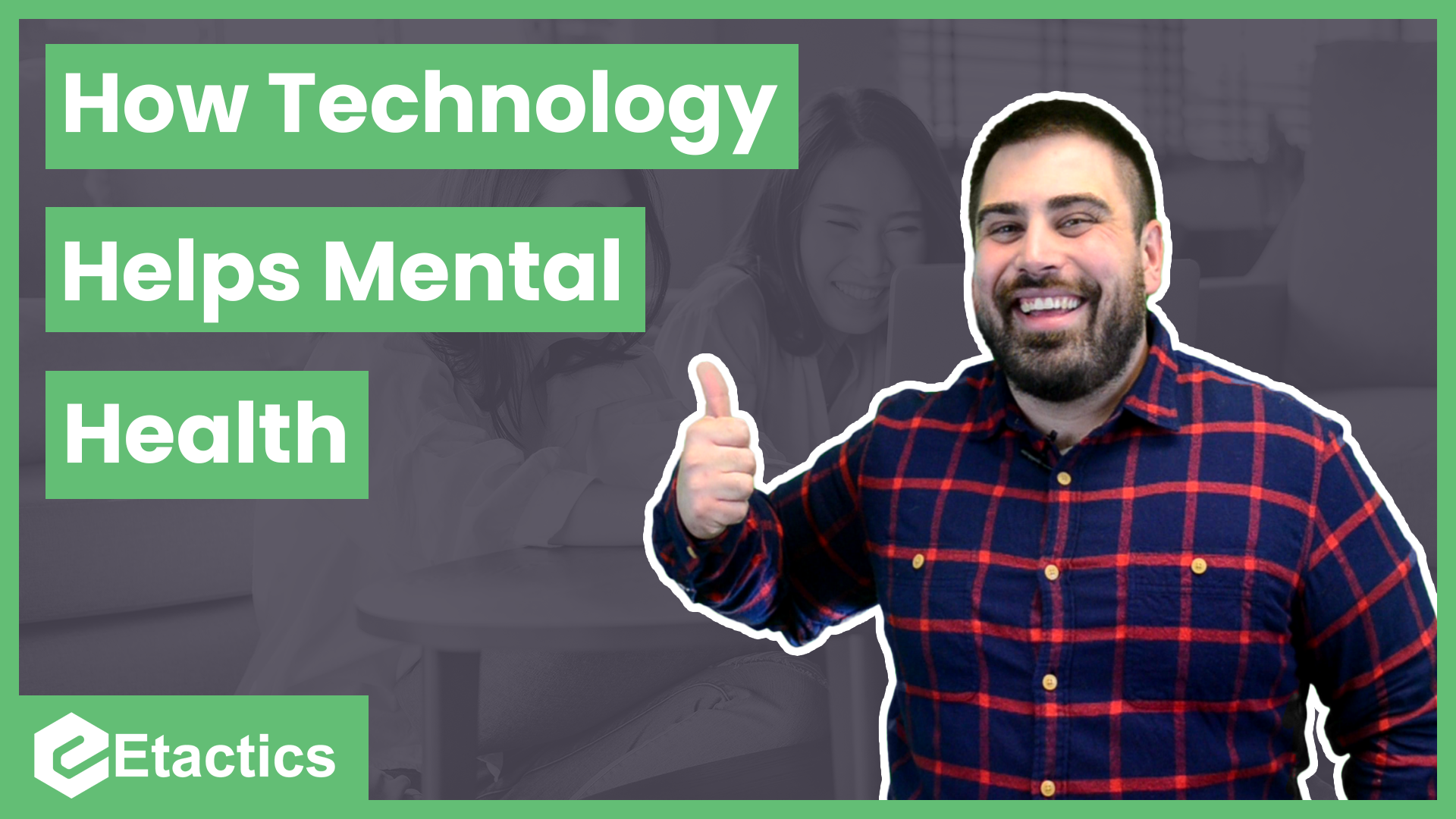How Has The Development Of Technology Positively Affected Our Wellness
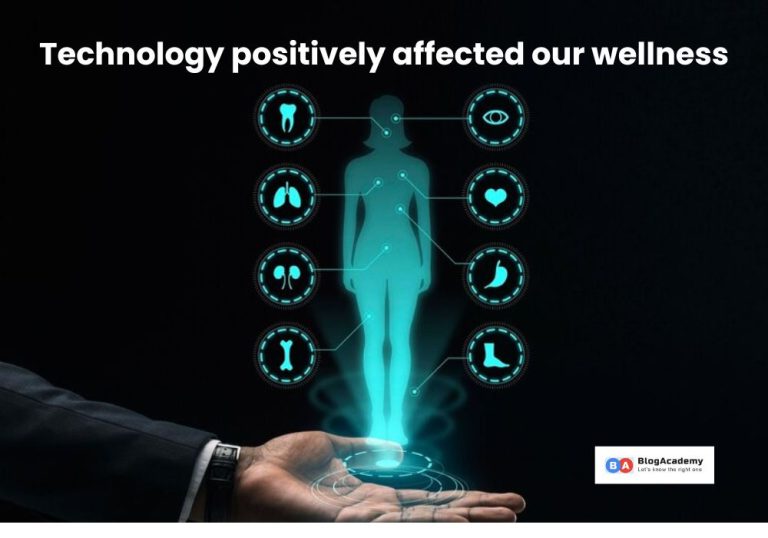
In a world grappling with rising stress levels and complex health challenges, technology has emerged not just as a source of anxiety, but as a powerful ally in promoting and enhancing overall wellness. From personalized fitness trackers to sophisticated mental health apps, technological advancements are reshaping how we approach our physical, mental, and emotional well-being.
This transformation begs the question: How profoundly is technology impacting our wellness, and what are the long-term implications of this digital revolution in healthcare and self-care? The integration of technology into our daily lives offers unprecedented opportunities for proactive health management, early disease detection, and accessible support systems. However, it also presents challenges related to data privacy, digital equity, and the potential for over-reliance on digital solutions.
The Rise of Digital Health and Fitness
Wearable technology has revolutionized personal fitness. Devices like Fitbit, Apple Watch, and others track activity levels, sleep patterns, and heart rate, providing users with real-time data to make informed decisions about their health.
According to a report by Statista, the wearable device market is projected to reach billions of dollars in revenue in the coming years, indicating a growing consumer interest in leveraging technology for fitness and health monitoring.
These devices, combined with specialized apps, offer personalized workout plans, nutritional guidance, and motivational support, making it easier for individuals to adopt and maintain healthy habits. The gamification of fitness, through apps like Strava and MyFitnessPal, further encourages engagement and adherence to fitness goals.
Mental Health Support in the Digital Age
Technology is also playing a crucial role in addressing the growing mental health crisis. Mental health apps and online therapy platforms are breaking down barriers to access, particularly for individuals in remote areas or those facing financial constraints.
Apps like Headspace and Calm offer guided meditation and mindfulness exercises, while platforms like Talkspace and BetterHelp connect users with licensed therapists for online counseling sessions.
A study published in the Journal of Medical Internet Research found that online cognitive behavioral therapy (CBT) can be as effective as traditional in-person therapy for treating conditions like anxiety and depression.
"The accessibility and convenience of digital mental health interventions are particularly valuable in reaching underserved populations,"states Dr. Sarah Klein, a leading researcher in telehealth.
Early Disease Detection and Remote Monitoring
Technological advancements are enabling earlier and more accurate disease detection. Artificial intelligence (AI) is being used to analyze medical images, such as X-rays and MRIs, to identify potential anomalies that might be missed by human eyes.
Remote patient monitoring (RPM) devices allow healthcare providers to track vital signs and other health indicators remotely, enabling timely interventions and reducing the need for hospital readmissions. According to the Centers for Disease Control and Prevention (CDC), RPM can improve outcomes for patients with chronic conditions such as diabetes and heart failure.
Furthermore, the development of diagnostic wearables, such as smartwatches capable of detecting atrial fibrillation (AFib), is empowering individuals to proactively monitor their health and seek medical attention when necessary.
The Challenges and Considerations
While technology offers numerous benefits for wellness, it is essential to acknowledge the potential downsides. Data privacy is a major concern, as the collection and storage of personal health data raise questions about security and confidentiality.
Digital equity is another challenge, as not everyone has equal access to technology and the internet. This can exacerbate health disparities, leaving vulnerable populations behind.
Over-reliance on technology can also lead to a disconnect from traditional forms of self-care and social interaction. It's crucial to maintain a balanced approach, integrating technology thoughtfully without sacrificing human connection and real-world experiences.
Looking Ahead: The Future of Technology and Wellness
The future of technology and wellness is promising, with ongoing advancements in personalized medicine, virtual reality (VR) therapy, and AI-powered health coaching. These innovations have the potential to further revolutionize healthcare and empower individuals to take control of their well-being.
However, it's crucial to address the ethical and societal implications of these technologies proactively. Regulations and guidelines are needed to ensure data privacy, promote digital equity, and prevent the misuse of AI in healthcare.
Ultimately, the key to harnessing the full potential of technology for wellness lies in a human-centered approach. By prioritizing user needs, promoting inclusivity, and fostering responsible innovation, we can create a future where technology empowers everyone to live healthier, happier, and more fulfilling lives.
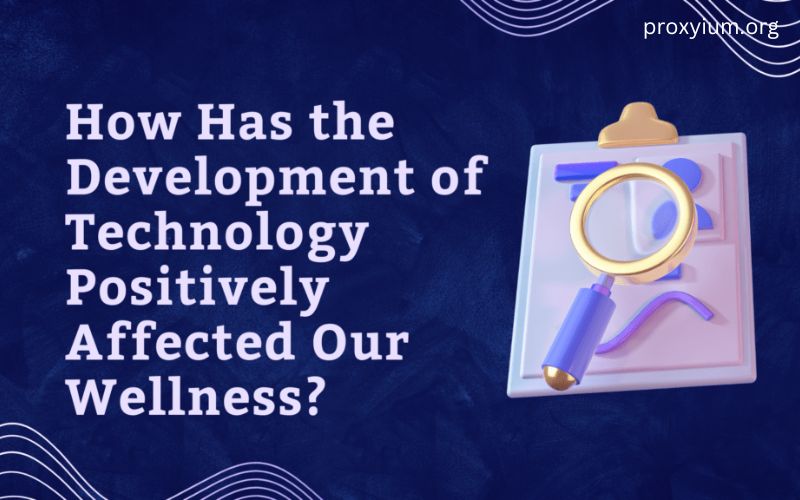
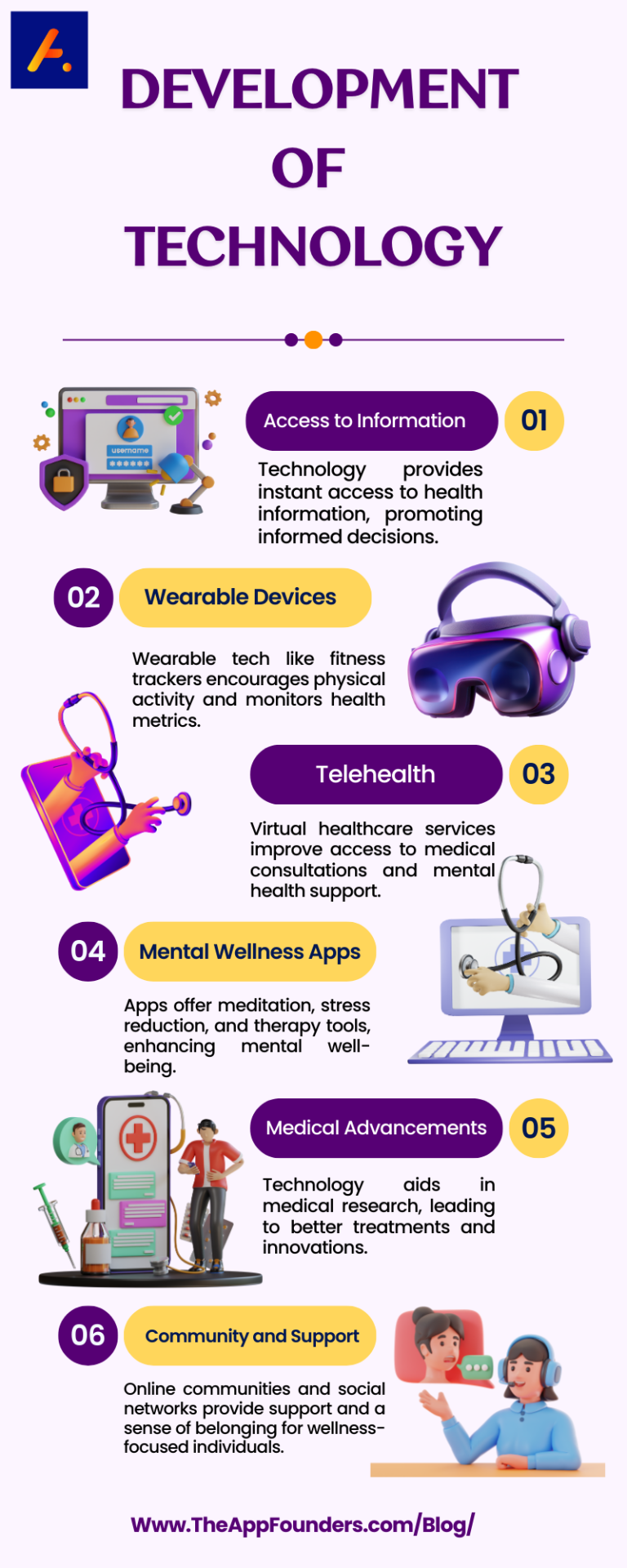
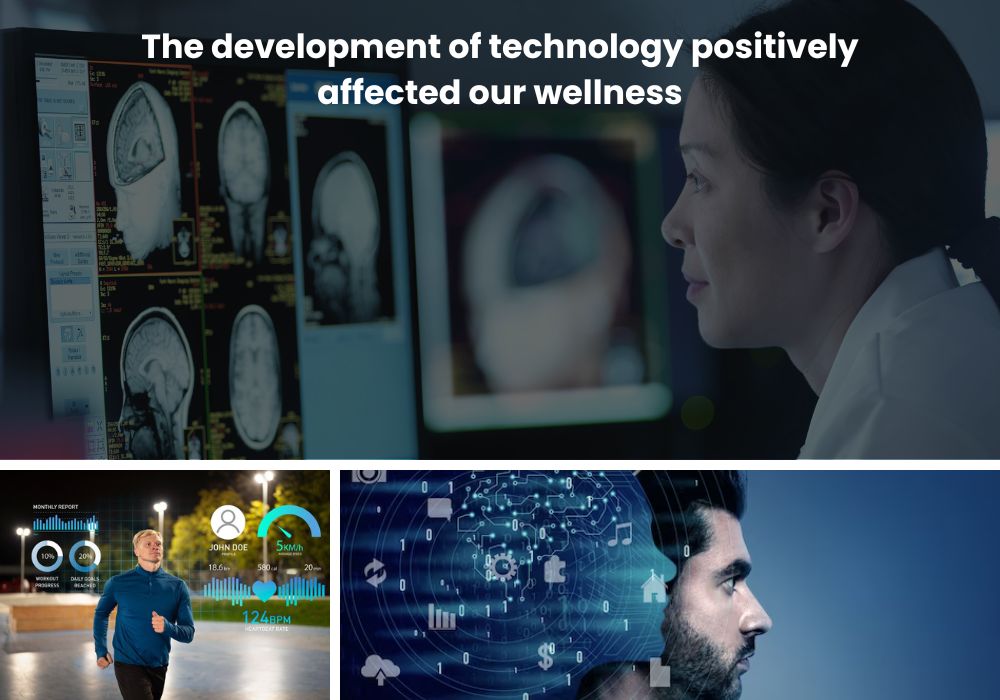

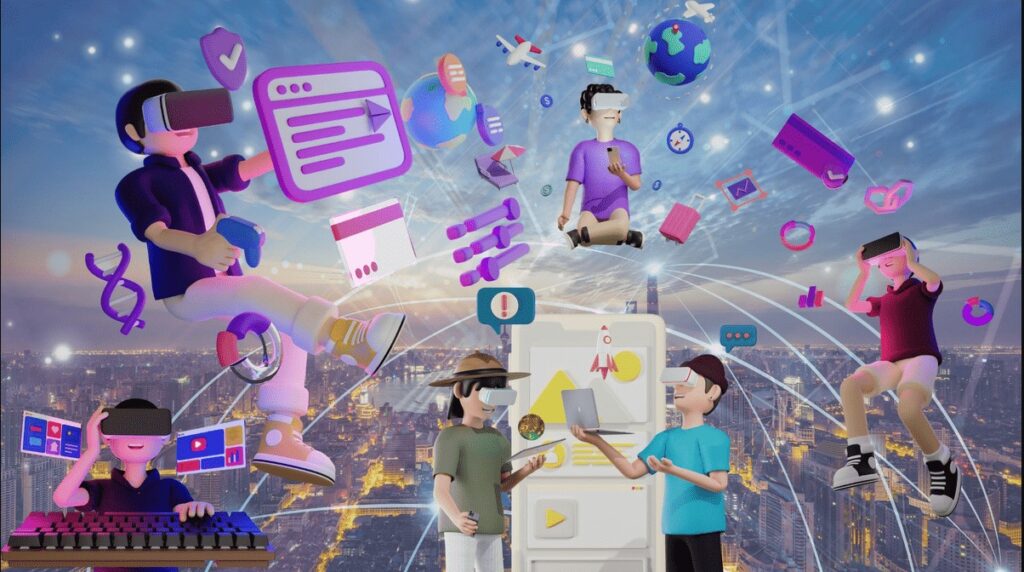
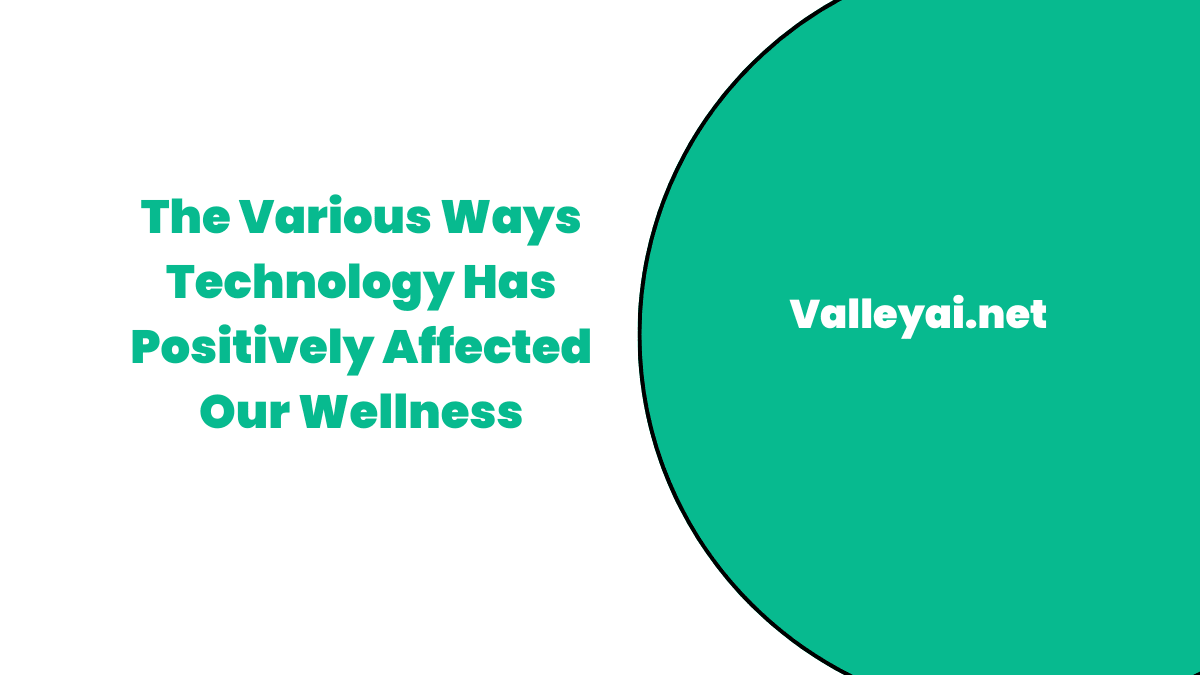




![How Has The Development Of Technology Positively Affected Our Wellness How Does Technology Affect Our Mental Health? [Study]](https://www.tidio.com/wp-content/uploads/top-5-areas-technology-improved-1-1200x1020.png)


.png)

